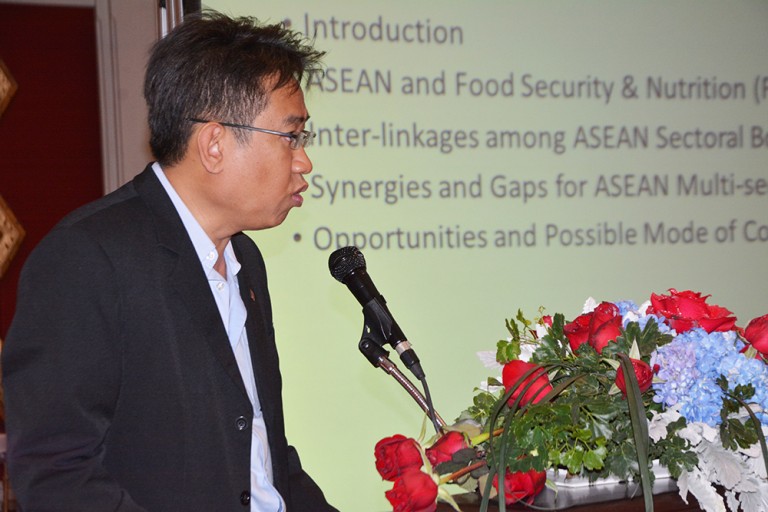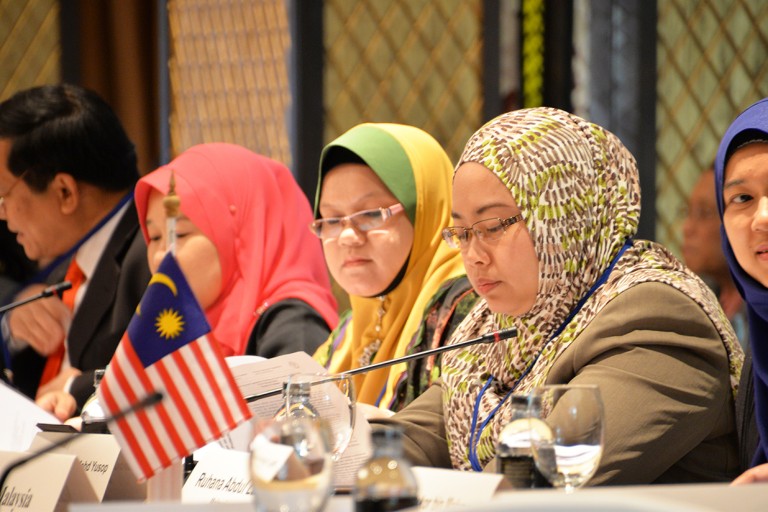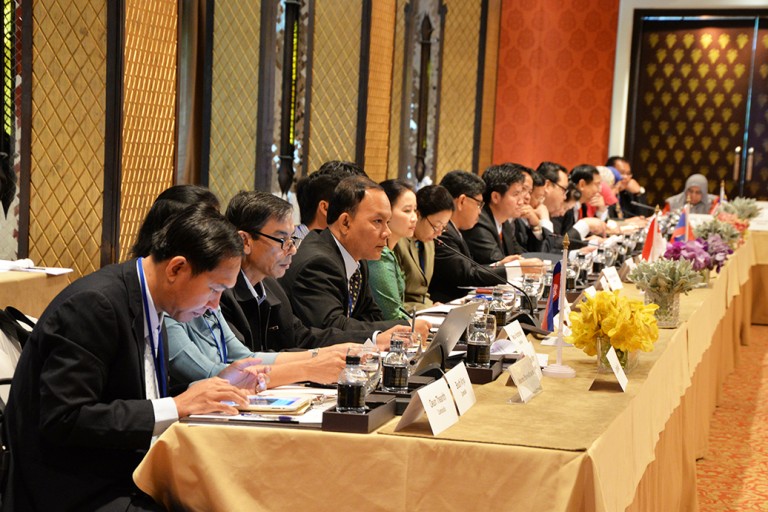
Writer: Rojana Manowalailao, ASEAN Sustainable Agrifood Systems
One in ten people in ASEAN is hungry and 9.6 per cent of people living in Southeast Asia are under-nourished. These figures of the Food and Agriculture Organization (FAO) were presented at the “ASEAN Inter-sectoral Consultative Conference on Food Security and Nutrition” recently held between 23 and 24 February 2016 in Bangkok, Thailand.
Although many countries in ASEAN improved greatly in poverty reduction, many are still struggling with child malnutrition. As lessons learned from the Millennium Development Goal framework specific to nutrition, it is realised that the focus on undernutrition was too narrow, and that synergies between nutrition and other sectors were underexploited
In handling these food and nutrition security issues more effectively, the recent ASEAN Inter-Sectoral Consultative Conference on Food Security and Nutrition brought together 90 delegates from nine ASEAN Member States, namely Cambodia, Indonesia, Lao PDR, Malaysia, Myanmar, Philippines, Singapore, Thailand and Vietnam particularly in seeking better inter-sectoral collaboration and coordination between relevant ASEAN Sectoral Bodies related to agriculture, rural development, health and social welfare for achieving food security and nutrition. Representatives of UN Agencies, International Organizations, and Development Partners also attended.
This multi-sectoral consultation meeting in food and nutrition security was the first of its kind in ASEAN. It underlined the importance of promotion of nutrition-enhancing agriculture by creating awareness and understanding among ASEAN sectoral bodies as well as sustaining cooperation through multi-sectoral and multi-stakeholder engagement, including the improvement of public expenditure for food security and nutrition and additional investment and financing.
The Conference also echoed the importance of the exchange of the experiences and lessons learnt from the ASEAN Member States.
This event was organized with support of FAO in collaboration with German International Cooperation (GIZ) and World Health Organization (WHO).

ASEAN Sustainable Agrifood Systems (ASEAN SAS) as part of the ASEAN-German Programme on Response to Climate Change in agriculture and forestry represented GIZ at this event. ASEAN SAS supports policy makers and stakeholders to implement the ASEAN Integrated Food Security (AIFS) Framework by focusing on the promotion of sustainable food production at the national level.
“Sustainable agriculture and food systems can be seen as central core for the partnership. Food security and nutrition is a complex and cross-cutting set of issues. In achieving food security and nutrition it requires inter-sectoral and multi-sectoral cooperation and partnership,” said Mr. Suriyan Vichitlekarn, ASEAN SAS’s regional advisor.
Food security as foundation should have sustainable agrifood systems to promote means of livelihood, competitiveness and ensuring staple supply of food. Towards long-term food security in the ASEAN region, Sustainable Agrifood Systems is regarded as the long-term sustainable approach (in its social, economic and environmental dimensions). ASEAN SAS project recognizes the importance and contribution of sustainable agriculture systems as a core strategy in achieving the food security and nutrition goals and targets.


